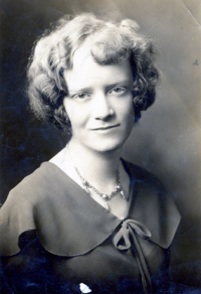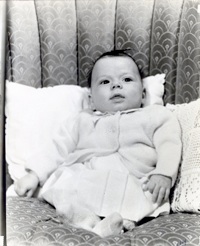David Borden The Piano Thing

Rasellus hendrerit pulvinar nibh


The Piano Thing
BY DAVID BORDEN
During my very early years (1939-1943), as I was coming into consciousness one of my earliest memories was hearing my father practice the piano in the next room while I was in my crib. He repeated phrases from various pieces over and over, perfecting the fingering, dynamics, phrasing etc. Among the composers were Liszt, Chopin and Gershwin. There were others, including ragtime, but those weren't revisited as often as those three composers. Of course as a child I had no idea what any of it was. But I believe it was this early "ear training" that gave me perfect pitch.

My maternal grandparents also lived with us in this 5-room apartment. As an adult, looking back, I wonder how so many people could live in harmony in such a small space. The rooms were small, there was no hot water or central heating. To keep food fresh, we had an ice box with a large chunk of ice in it that drained into a large pan on the floor. Mr. Amendola would haul the ice on his leather-protected back up the three flights of stairs every third day or so, along with a bag of coal. We didn't have a refrigerator until after the war (WW II). The only stove was a large iron black monolith in the kitchen that burned coal. To take baths, my mother would boil large pots of water and mix it with the cold water in the tub, so of course there was no shower. I remember in the winters I would wake up in my freezing room and make a beeline for the
My mother Natalie in 1929
Sometime shortly before I left Brookline to study at the Eastman School of Music in Rochester, NY, my father told me how we happened to have a piano as I was growing up.
My parents were married during the summer of 1935. Neither of them had any education beyond high school. Neither had any money. My father had been an orphan since he was 14. My mother's parents had been servants with no education past the eighth grade. When they got married my mother's father was ill, so they agreed to live altogether until he got better. It turned into a lifelong arrangement. Since they had no money and lived in cramped quarters, they naturally wanted children. After several months of trying but not getting anywhere on the pregnancy front, my parents sought help from doctors, wondering if there was some medical problem that prevented them from having children. After countless tests and trying at times my mother's temperature was slightly higher and other methods of natural impregnating, nothing happened. This went on for almost three years. They then assumed that theirs would be a childless marriage.
During this time they had saved $300 toward the expense of childbirth. There were no healthcare plans available then like there are now. $300 was a lot of money in the Depression. My father only made $13 a week. My mother made less. Everyday on his way to Scolley square, my father would pass several music stores. He had had a few piano lessons as a young boy and knew how to read music. He loved music, but the 50 cents for lessons had proved too much for his parents to afford. He noticed that one store had a selling deal that appealed to him: if you bought a piano with cash from a certain group of pianos, you would get a year's free piano lessons. The piano teacher was also an employee of the store and would demonstrate various classical pieces on the pianos. He talked this over with my mother. Since they had $300, the exact amount for one of the pianos, he could use this to fulfill his dream of really learning the piano, and since they couldn't have children, it would be another way to accomplish something positive. Since my mother was already involved in artistic pursuits of her own with oil painting and water colors, she was sympathetic and agreed.
So, the upright piano was delivered to the tiny apartment, my father got the lessons. He was so good, that the store used him as an example of what one could do in a short time, starting late in life. He and his teacher would play Gershwin's Rhapsody in Blue at the store on two pianos with my father playing the solo piano part and his teacher the orchestral accompaniment. He kept getting free lessons for as long as he helped demonstrate the pianos. He also kept his job as busboy/bouncer.

Three weeks after the piano was delivered my mother got pregnant with me. I always tell people that I refused to come back to earth until they got the piano. Karmically I think I knew these were going to be my parents, but they just had to get that piano. I think it must have been a deal we worked out before we all incarnated.
By the time I started piano lessons in the 1st grade ($1 a lesson) I recognized pitches by name even when I wasn't the one playing them. I thought everyone could do this. This was in 1944 and by that time, my father had been working in a machine shop that fabricated parts for munitions. He ended up having a lot of minute metallic particles in his hands that became painful when he tried to play the piano. So after I started he would only occasionally play himself, but would always be eager to help me with my lessons.
After the war he earned his living as a janitor. When it was obvious that I needed a better piano teacher to make progress towards a professional career, he returned to the same Boston music stores he used to pass on the way to work during the Depression. He asked each sheet music department which piano teacher bought the highest quality music. He got the same answer at four of the five stores. This teacher charged $10 an hour which is like $150 an hour these days. Instead of compromising on the piano teacher, he took on an extra cleaning job (in addition to his several other part- time janitorial jobs) on his night off. He cleaned out a Doughnut shop for $5. He talked the piano teacher into giving me 45 minute lessons for $7.50. Albion Metcalf was one of the very best piano teachers in Boston. He also taught at Phillip's Andover Academy and had gone to Harvard. I was in blueblood territory. My father never told my mother how much the lessons cost because he knew she would veto the idea. He didn't even tell me until I had received my first college degree.
When my parents retired to sunny Florida, my father would mostly pursue his horticultural interests. He grew the strangest trees and plants I ever saw, and had a fancy landscape design around their house. He only occasionally would try out Gershwin at the piano. The same piano.
He died in 1982 and when my mother recently passed away, I had the piano delivered to my nephew in Tampa who is receiving lessons on it as I write this. When preparing their Florida house for sale, the realtor hired a landscape company to keep up the lawn and help with the sale of the house. When I met the landscape guy at the door he peered around the front of the house and said, "This is the most interesting collection of plants I've seen yet, very rare stuff.” Very rare indeed!
David Borden
June 04, 2000
